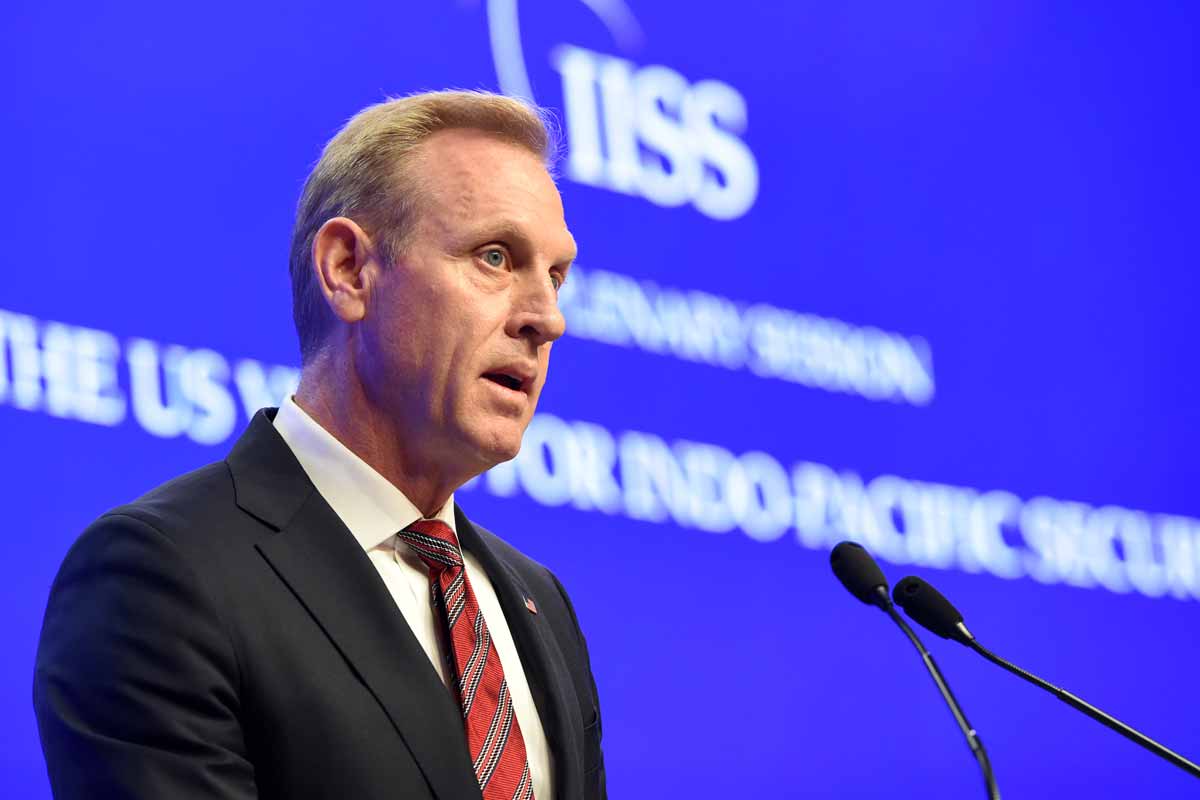The United States (US) warned China on Saturday against threatening its neighbours' sovereignty and said Washington is investing in new military technology to defend its Asian allies.
Washington and Beijing have been vying for influence in the region, which hosts potential flashpoints such as the South China Sea, the Korean Peninsula and the Taiwan Strait.
Ties between the two powers are once again taking centre stage at the weekend Singapore conference known as the Shangri-La Dialogue, which gathers defence ministers and top military officials from around the world.
While the forum is purely on security, the discussions are being held against a backdrop of Sino-US trade tensions and high-tech rivalry.
"China can and should have a cooperative relationship with the rest of the region ... But behaviour that erodes other nations' sovereignty and sows distrust of China's intentions must end," acting US Secretary of Defense Patrick Shanahan told the forum.
"Until it does, we stand against a myopic, narrow, and parochial vision of the future, and we stand for the free and open order that has benefitted us all, including China."
No 'fait accompli'
Washington has been pushing back against Beijing's aggressive militarisation of the South China Sea, where China has staked "indisputable" ownership over almost the whole area and rejects partial claims by Taiwan, Brunei, Malaysia, the Philippines and Vietnam.
Beijing is also regularly angered by US and other warships transiting through the Taiwan Strait, which it considers part of its territorial waters.
A French warship entered the Strait in April, prompting a warning from China's navy.
On Saturday, French minister of the armed forces Florence Parly said her country's forces will not be forced from the region.
"We will continue to sail more than twice a year in the South China Sea. There will be objections, there will be dubious manoeuvres at sea. But we will not be intimidated into accepting any fait accompli," she told the forum.
For the first time since 2011, China has sent its defence minister, General Wei Fenghe, to the Singapore gathering. Wei is scheduled to speak Sunday, when he is expected to respond to Shanahan's remarks.
The Sino-US rivalry has placed many Asian countries in a bind as they have deep military ties with Washington but enjoy strong trade relations with Beijing.
"The uncertain relationship between the US and China will remain as an explicit factor in shaping the stability of the Asia-Pacific region particularly that of Southeast Asian countries," Malaysian Defence Minister Mohamad Sabu told the conference Saturday.
"If anything happens in the South China Sea, the world also will suffer. We have to increase our defence diplomacy. We love America, we also love China."
'Indo-Pacific is our priority'
Shanahan said the US was investing heavily in new military technology to combat fresh threats and maintain its superiority and capability to defend its Asian allies.
He said North Korea "remains an extraordinary threat and requires continued vigilance" and stressed Washington would continue to meet its defence obligations to Taiwan, which China sees as part of its territory to be reunified.
"The Indo-Pacific is our priority theatre. We are where we belong. We are investing in the region," he said, adding that military investments will rise significantly over the next five years.
"We want to ensure no adversary believes it can successfully achieve political objectives through military force," Shanahan said.
Shao Yuanming, deputy chief of the joint staff department of China's Central Military Commission, on Saturday welcomed US efforts to stabilise military ties, but slammed what he said were "erroneous remarks" by Shanahan on the South China Sea and Taiwan.
"From the very beginning, Taiwan is an inseparable part of China," he said.
"China must be unified... If anyone wants to split Taiwan from China, the Chinese army will resolutely defend our motherland at all costs."
The two sides have been ruled separately since the end of a civil war on the mainland in 1949 but China still sees Taiwan as part of its territory to be reunified. - AFP
